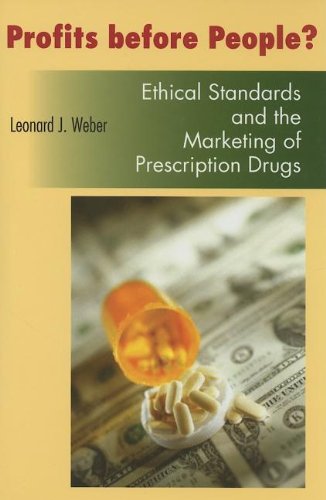

Most ebook files are in PDF format, so you can easily read them using various software such as Foxit Reader or directly on the Google Chrome browser.
Some ebook files are released by publishers in other formats such as .awz, .mobi, .epub, .fb2, etc. You may need to install specific software to read these formats on mobile/PC, such as Calibre.
Please read the tutorial at this link. https://ebooknice.com/page/post?id=faq
We offer FREE conversion to the popular formats you request; however, this may take some time. Therefore, right after payment, please email us, and we will try to provide the service as quickly as possible.
For some exceptional file formats or broken links (if any), please refrain from opening any disputes. Instead, email us first, and we will try to assist within a maximum of 6 hours.
EbookNice Team

Status:
Available5.0
41 reviewsThe pharmaceutical industry has come under intense criticism in recent years. One poll found that 70% of the sample agreed that drug companies put profits ahead of people. Is this perception accurate? Have drug companies traded ethics for profits and placed people at risk?
In Profits before People? Leonard J. Weber exposes pharmaceutical industry practices that have raised ethical concerns. Providing systematic ethical analysis and reflection, he discusses such practices as compensating physicians for serving as speakers or consultants, providing incentives to physicians to enroll patients as subjects in clinical research, and advertising prescription drugs to the public through the mass media. Weber’s critique of the industry is stern. While acknowledging that new industry guidelines are promising, he finds much room for improvement in the way drug companies market their products. Yet Weber makes a strong case that profits and ethics can coexist and that they are not mutually exclusive.
In an effort to understand the proper place of commerce in disseminating information about new drugs, the book aims to clarify basic responsibilities and to help identify sound ethical practices. It recognizes that ethics and law are not the same, that "having a right" is different from "doing the right thing," and that taking ethics seriously means recognizing that the law does not answer all questions about what is right. Weber points the way to more demanding standards and better practices that might begin to restore confidence in the drug industry.